- Home
- Margaret Atwood
The Year of the Flood Page 2
The Year of the Flood Read online
Page 2
Say their Names.
Let us sing.
WHEN ADAM FIRST
When Adam first had breath of life
All in that golden place,
He dwelt in peace with Bird and Beast,
And knew God face to face.
Man's Spirit first went forth in speech
To Name each Creature dear;
God called to all in Fellowship,
They came without a fear.
They romped in play, and sang, and flew --
Each motion was a praise
For God's great Creativity
That filled those early days.
How shrunk, how dwindled, in our times
Creation's mighty seed --
For Man has broke the Fellowship
With murder, lust, and greed.
Oh Creatures dear, that suffer here,
How may we Love restore?
We'll Name you in our inner Hearts,
And call you Friend once more.
From The God's Gardeners Oral Hymnbook
3
TOBY. PODOCARP DAY
YEAR TWENTY-FIVE
It's daybreak. The break of day. Toby turns this word over: break, broke, broken. What breaks in daybreak? Is it the night? Is it the sun, cracked in two by the horizon like an egg, spilling out light?
She lifts her binoculars. The trees look as innocent as ever; yet she has the feeling that someone's watching her -- as if even the most inert stone or stump can sense her, and doesn't wish her well.
Isolation produces such effects. She'd trained for them during the God's Gardeners Vigils and Retreats. The floating orange triangle, the talking crickets, the writhing columns of vegetation, the eyes in the leaves. Still, how to distinguish between such illusions and the real thing?
The sun's fully up now -- smaller, hotter. Toby makes her way down from the rooftop, covers herself in her pink top-to-toe, sprays with SuperD for the bugs, and adjusts her broad pink sunhat. Then she unlocks the front door and goes out to tend the garden. This is where they used to grow the ladies' organic salads for the Spa Cafe -- their garnishes, their exotic spliced vegetables, their herbal teas. There's overhead netting to thwart the birds, and a chain-link fence because of the green rabbits and the bobkittens and the rakunks that might wander in from the Park. These weren't numerous before the Flood, but it's astonishing how quickly they've been multiplying.
She's counting on this garden: her supplies in the storeroom are getting low. Over the years she'd stashed what she thought would be enough for an emergency like this, but she'd underestimated, and now she's running out of soybits and soydines. Luckily, everything in the garden is doing well: the chickenpeas have begun to pod, the beananas are in flower, the polyberry bushes are covered with small brown nubbins of different shapes and sizes. She picks some spinach, flicks off the iridescent green beetles on it, steps on them. Then, feeling remorseful, she makes a thumbprint grave for them and says the words for the freeing of the soul and the asking of pardon. Even though no one's watching her, it's hard to break such ingrained habits.
She relocates several slugs and snails and pulls out some weeds, leaving the purslane: she can steam that later. On the delicate carrot fronds she finds two bright-blue kudzu-moth caterpillars. Though developed as a biological control for invasive kudzu, they seem to prefer garden vegetables. In one of those jokey moves so common in the first years of gene-splicing, their designer gave them a baby face at the front end, with big eyes and a happy smile, which makes them remarkably difficult to kill. She pulls them off the carrots, their mandibles chewing ravenously beneath their cutie-pie masks, lifts the edge of the netting, and tosses them outside the fence. No doubt they'll be back.
On the way back to the building, she finds the tail of a dog beside the path -- an Irish setter, it looks like -- its long fur matted with burrs and twigs. A vulture's dropped it there, most likely: they're always dropping things. She tries not to think of the other things they dropped in the first weeks after the Flood. Fingers were the worst.
Her own hands are getting thicker -- stiff and brown, like roots. She's been digging in the earth too much.
4
TOBY. SAINT BASHIR ALOUSE DAY
YEAR TWENTY-FIVE
She takes her baths in the early mornings, before the sun's too hot. She keeps a number of pails and bowls up on the rooftop, for collecting the afternoon-storm rainwater: the Spa has its own well, but the solar system's broken so the pumps are useless. She does her laundry on the rooftop too, spreading it out on the benches to dry. She uses the grey-water to flush her toilet.
She rubs herself with soap -- there's still a lot of soap, all of it pink -- and sponges off. My body is shrinking, she thinks. I'm puckering, I'm dwindling. Soon I'll be nothing but a hangnail. Though she's always been on the skinny side -- Oh Tobiatha, the ladies used to say, if only I had your figure!
She dries herself off, slips on a pink smock. This one says, Melody. There's no need to label herself now that nobody's left to read the labels, so she's begun wearing the smocks of the others: Anita, Quintana, Ren, Carmel, Symphony. Those girls had been so cheerful, so hopeful. Not Ren, though: Ren had been sad. But Ren had left earlier.
Then all of them had left, once the trouble hit. They'd gone home to be with their families, believing love could save them. "You go ahead, I'll lock up," Toby had told them. And she had locked up, but with herself inside.
She scrubs her long dark hair, twists it into a wet bun. She really must cut it. It's thick and too hot. Also it smells of mutton.
As she's drying her hair she hears an odd sound. She goes cautiously to the rooftop railing. Three huge pigs are nosing around the swimming pool -- two sows and a boar. The morning light shines on their plump pinky-grey forms; they glisten like wrestlers. They seem too large and bulbous to be normal. She's spotted pigs like this before, in the meadow, but they've never come this close. Escapees, they must be, from some experimental farm or other.
They're grouped by the shallow end of the pool, gazing at it as if in thought, their snouts twitching. Maybe they're sniffing the dead rakunk floating on the surface of the scummy water. Will they try to retrieve it? They grunt softly to one another, then back away: the thing must be too putrid even for them. They pause for a final sniff, then trot around the corner of the building.
Toby follows the railing, tracking them. They've found the garden fence, they're looking in. Then one of them begins to dig. They'll tunnel under.
"Get away from there!" Toby shouts at them. They peer up at her, dismiss her.
She scrambles down the stairs as fast as she can without slipping. Idiot! She should keep the rifle with her at all times. She grabs it from her bedside, hurries back up to the roof. She holds one of the pigs in the scope -- the boar, an easy shot, he's sideways -- but then she hesitates. They're God's Creatures. Never kill without just cause, said Adam One.
"I'm warning you!" she yells. Amazingly they seem to understand her. They must've seen a weapon before -- a spraygun, a stun gun. They squeal in alarm, then turn and run.
They're a quarter of the way across the meadow when it occurs to her they'll be back. They'll dig under at night and root up her garden in no time flat, and that will be the end of her long-term food supply. She'll have to shoot them, it's self-defence. She squeezes off a round, misses, tries again. The boar falls down. The two sows keep running. Only when they've reached the forest rim do they turn and look back. Then they meld with the foliage and are gone.
Toby's hands are shaking. You've snuffed a life, she tells herself. You've acted rashly and from anger. You ought to feel guilty. Still, she thinks of going out with one of the kitchen knives and sawing off a ham. She'd taken the Vegivows when she joined the Gardeners, but the prospect of a bacon sandwich is a great temptation right now. She resists it, however: animal protein should be the last resort.
She murmurs the standard Gardener words of apology, though she doesn't feel apologetic. Or not apolog
etic enough.
She needs to do some target practice. Shooting the boar, missing at first, letting the sows get away -- that was clumsy.
In recent weeks she's grown lax about the rifle. Now she vows to cart it around with her wherever she goes -- even up to the rooftop for a bath, even to the toilet. Even to the garden -- especially to the garden. Pigs are smart, they'll keep her in mind, they won't forgive her. Should she lock the door when she goes out? What if she has to run back into the Spa building in a hurry? But if she leaves the door unlocked, someone or something could slip in when she's working in the garden and be waiting for her inside.
She'll need to think of every angle. An Ararat without a wall isn't an Ararat at all, as the Gardener children used to chant. A wall that cannot be defended is no sooner built than ended. The Gardeners loved their instructive rhymes.
5
Toby went in search of the rifle a few days after the first outbreaks. It was the night after the girls had fled from AnooYoo, leaving their pink smocks behind them.
This was not an ordinary pandemic: it wouldn't be contained after a few hundred thousand deaths, then obliterated with biotools and bleach. This was the Waterless Flood the Gardeners so often had warned about. It had all the signs: it travelled through the air as if on wings, it burned through cities like fire, spreading germ-ridden mobs, terror, and butchery. The lights were going out everywhere, the news was sporadic: systems were failing as their keepers died. It looked like total breakdown, which was why she'd needed the rifle. Rifles were illegal and getting caught with one would have been fatal a week earlier, but now such laws were no longer a factor.
The trip would be dangerous. She'd have to walk to her old pleeb -- no transport would be functioning -- and locate the tacky little split-level that had so briefly belonged to her parents. Then she'd have to dig the rifle up from where it had been buried, hoping no one would see her doing it.
Walking that far would be no problem: she'd kept herself in shape. The hazard would be other people. The rioting was everywhere, according to what fitful news she could still pick up from her phone.
She left the Spa at dusk, locking the door behind her. She crossed the wide lawns and made her way to the northern entrance along the woodland walk where the customers used to take their shady strolls: she'd be less visible there. There were still some glowlights marking the pathway. She met no one, though a green rabbit hopped into the bushes and a bobkitten crossed in front of her, turning to stare with its lambent eyes.
The entrance gate was ajar. She slid through cautiously, half expecting a challenge. Then she set out across Heritage Park. People were hurrying past, singly and in groups, trying to get out of the city, hoping to make their way through the pleebland sprawl and seek out refuge in the countryside. There was coughing, a child's wail. She almost stumbled over someone on the ground.
By the time she reached the Park's outer edge, it was pitch-dark. She moved from tree to tree along the verge, hugging the shadows. The boulevard was jammed with cars, trucks, solarbikes, and buses, their drivers honking and shouting. Some of the vehicles had been overturned and were burning. In the shops, the looting was in full swing. There were no CorpSeCorpsMen in sight. They must have been the first to desert, heading for their gated Corporation strongholds to save their skins, and carrying -- Toby certainly hoped -- the lethal virus with them.
From somewhere there were gunshots. So backyards were already being dug up, thought Toby: hers was not the only rifle.
Up the street there was a barricade, cars wedged together. It had its defenders, armed with what? As far as Toby could see they were using metal pipes. The crowd was screaming at them in fury, throwing bricks and stones: they wanted past, they wanted to flee the city. What did the barricade-holders want? Plunder, no doubt. Rape and money, and other useless things.
When the Waterless Waters rise, Adam One used to say, the people will try to save themselves from drowning. They will clutch at any straw. Be sure you are not that straw, my Friends, for if you are clutched or even touched, you too will drown.
Toby turned away from the barricade -- she'd have to circle around it. She held herself back in the darkness, crouching along behind the foliage and skirting the Park's rim. Now she'd reached the open space where the Gardeners used to hold their markets, and the cobb house where the kids once played. She hid behind it, waiting for a distraction. Soon enough there was a crash and an explosion, and while all heads were turned she ambled across. It's best not to run, Zeb had taught: running away makes you a prey.
The side streets were awash with people; she dodged to avoid them. She'd worn surgical gloves, a bulletproof vest made of silk from a spider/goat splice lifted from the AnooYoo guardhouse a year ago, and a black nose-cone air filter. From the garden shed she'd brought a shovel and a crowbar, both of which could be lethal if used decisively. In her pocket was a bottle of AnooYoo Total Shine Hairspray, an effective weapon if aimed at the eyes. She'd learned a lot of things from Zeb in his Urban Bloodshed Limitation classes: in Zeb's view, the first bloodshed to be limited should be your own.
She headed northeast, through upmarket Fernside, then through Big Box with its tracts of smallish, badly built houses, slipping along the narrowest streets, which were dimly lit and not crowded. Several people passed her, intent on their own stories. Two teenagers paused as if to try a mugging, but she began coughing and croaked out, "Help me!" and they scurried away.
Around midnight, and after a few wrong turns -- the streets in Big Box looked so much alike -- she reached her parents' former house. No lights were on, the door to the garage was open, and the plate-glass window at the front was smashed, so she didn't think anyone was in there. The current occupants were either dead or elsewhere. It was the same with the identical house next door, the one where the rifle was buried.
She stood for a moment, calming herself down, listening to the blood in her head: katoush, katoush, katoush. Either the rifle was still there or it was gone. If it was there, she'd have a rifle. If it was gone, she wouldn't have one. Nothing to panic about.
She opened the neighbours' garden gate, stealthy as a thief. Darkness, no movement. The scent of night flowers: lilies, nicotiana. Mixed with that, a whiff of smoke from something burning, blocks away: she could see the flare. A kudzu moth flickered against her face.
She stuck the crowbar under a patio stone, lifted, grabbed the edge, heaved the stone over. Did it again, and again. Three patio stones. Then she dug with the shovel.
A heartbeat, then another.
It was there.
Don't cry, she told herself. Just cut open the plastic, grab the rifle and the ammunition, and get out of here.
It took her three days to get back to AnooYoo, skirting the worst rioting. There were muddy footprints on the outside steps, but no one had broken in.
6
The rifle is a primitive weapon -- a Ruger 44/99 Deerfield. It had been her father's. He was the one who'd taught her to shoot, when she was twelve, back in those days that seem now like some mushroom-induced Technicolour brain vacation. Aim for the centre of the body, he'd said. Don't waste your time with heads. He said he just meant animals.
They'd been living in the semi-country, before the sprawl had rolled over that stretch of landscape. Their white frame house had ten acres of trees around it, and there were squirrels, and the first green rabbits. No rakunks, those hadn't been put together yet. There were a lot of deer; they'd get into her mother's vegetable garden. Toby had shot a couple, and helped to dress them; she can still remember the smell, and the slither of shining viscera. They'd eaten deer stew, and her mother had made soup with the bones. But mostly Toby and her father shot tin cans, and rats at the dump -- there'd still been a dump. She'd practised a lot, which had pleased her dad. "Great shot, pal," he'd say.
Had he wanted a son? Perhaps. What he'd said was that everyone needed to know how to shoot. His generation believed that if there was trouble all you'd have to do was shoot someone and t
hen it would be okay.
Then the CorpSeCorps had outlawed firearms in the interests of public security, reserving the newly invented sprayguns for themselves, and suddenly people were officially weaponless. Her father had buried his rifle and a supply of ammunition under a pile of discarded picket fencing and shown Toby where it was in case she ever needed it. The CorpSeCorps could have found it with their metal detectors -- they were rumoured to be doing sweeps -- but they couldn't look everywhere, and her father was innocuous from their point of view. He sold air conditioning. He was a small potato.
Then a developer wanted to buy his land. The offer was good, but Toby's father refused to sell. He liked it where he was, he said. So did Toby's mother, who ran the HelthWyzer supplements franchise in the nearest shopping area. They turned down another offer, then a third. "We'll build around you," said the developer. Toby's father said that was okay with him: by this time it had become a matter of principle.
He thought the world was still the way it had been fifty years before, thinks Toby. He shouldn't have been so stubborn. Already, back then, the CorpSeCorps were consolidating their power. They'd started as a private security firm for the Corporations, but then they'd taken over when the local police forces collapsed for lack of funding, and people liked that at first because the Corporations paid, but now CorpSeCorps were sending their tentacles everywhere. He should have caved.
First he'd lost his job with the air-conditioning corp. He got another one selling thermal windows, but it paid less. Then Toby's mother came down with a strange illness. She couldn't understand it, because she'd always been so careful about her health: she worked out, she ate a lot of vegetables, she took a dose of HelthWyzer Hi-Potency VitalVite supplements daily. Franchise operators like her got a deal on the supplements -- their own customized package, just like the ones for the higher-ups at HelthWyzer.
She took more supplements, but despite that she became weak and confused and lost weight rapidly: it was as if her body had turned against itself. No doctor could give her a diagnosis, though many tests were done by the HelthWyzer Corp clinics; they took an interest because she'd been such a faithful user of their products. They arranged for special care, with their own doctors. They charged for it, though, and even with the discount for members of the HelthWyzer Franchise Family it was a lot of money; and because the condition had no name, her parents' modest health insurance plan refused to cover the costs. Nobody could get public wellness coverage unless they had no money of their own whatsoever.

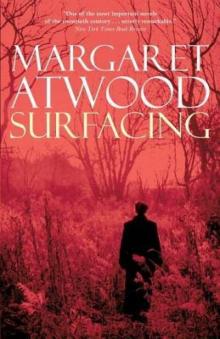 Surfacing
Surfacing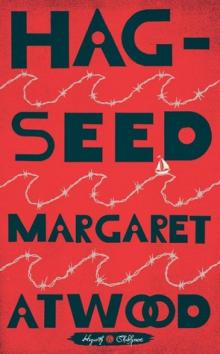 Hag-Seed
Hag-Seed Oryx and Crake
Oryx and Crake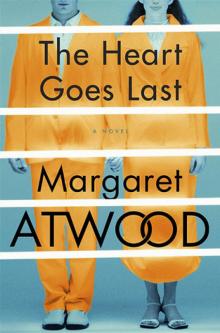 The Heart Goes Last
The Heart Goes Last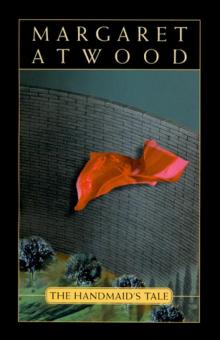 The Handmaid's Tale
The Handmaid's Tale Lady Oracle
Lady Oracle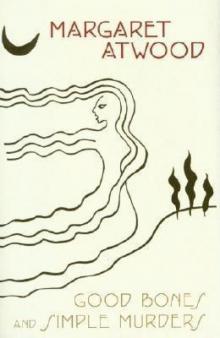 Good Bones and Simple Murders
Good Bones and Simple Murders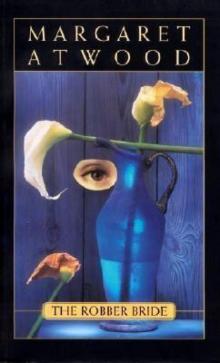 The Robber Bride
The Robber Bride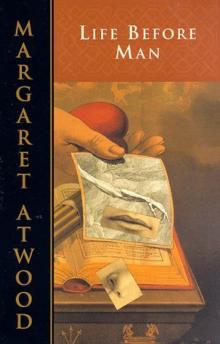 Life Before Man
Life Before Man Alias Grace
Alias Grace The Blind Assassin
The Blind Assassin Cat's Eye
Cat's Eye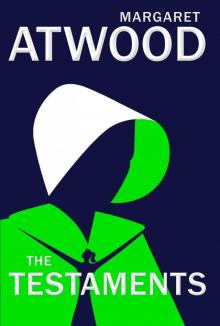 The Testaments
The Testaments The Penelopiad
The Penelopiad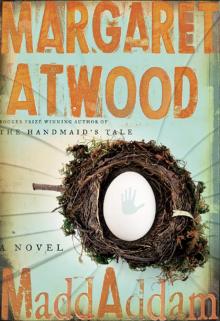 MaddAddam
MaddAddam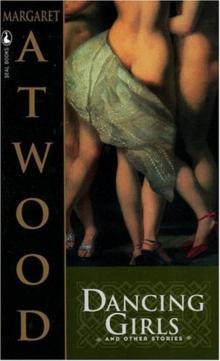 Dancing Girls & Other Stories
Dancing Girls & Other Stories On Writers and Writing
On Writers and Writing Selected Poems II (1976-1986)
Selected Poems II (1976-1986) Wilderness Tips
Wilderness Tips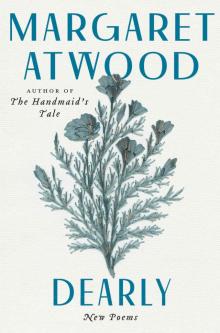 Dearly
Dearly The Tent
The Tent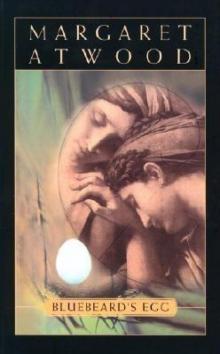 Bluebeard's Egg
Bluebeard's Egg The Edible Woman
The Edible Woman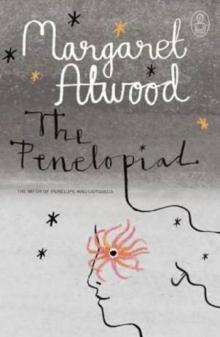 The Penelopiad: The Myth of Penelope and Odysseus
The Penelopiad: The Myth of Penelope and Odysseus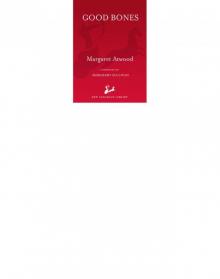 Good Bones
Good Bones I Dream of Zenia with the Bright Red Teeth
I Dream of Zenia with the Bright Red Teeth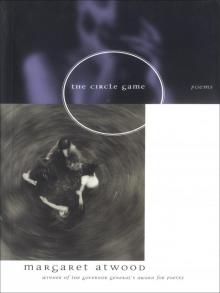 Circle Game
Circle Game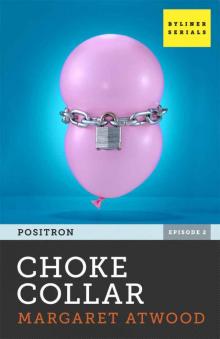 Choke Collar: Positron, Episode Two
Choke Collar: Positron, Episode Two Stone Mattress: Nine Tales
Stone Mattress: Nine Tales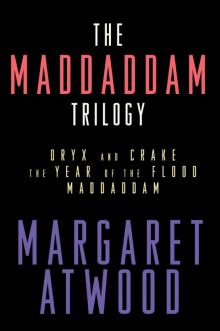 The MaddAddam Trilogy
The MaddAddam Trilogy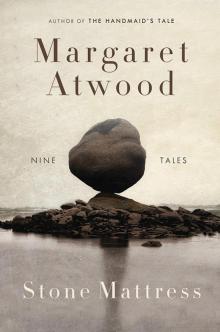 Stone Mattress
Stone Mattress Power Politics
Power Politics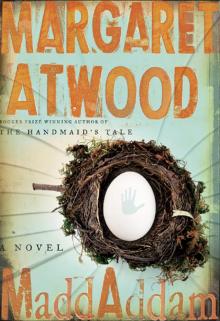 MaddAddam 03 - MaddAddam
MaddAddam 03 - MaddAddam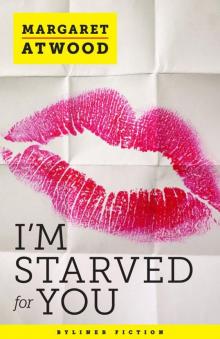 I’m Starved for You (Kindle Single)
I’m Starved for You (Kindle Single) Murder in the Dark
Murder in the Dark In Other Worlds
In Other Worlds Dancing Girls
Dancing Girls Moral Disorder
Moral Disorder